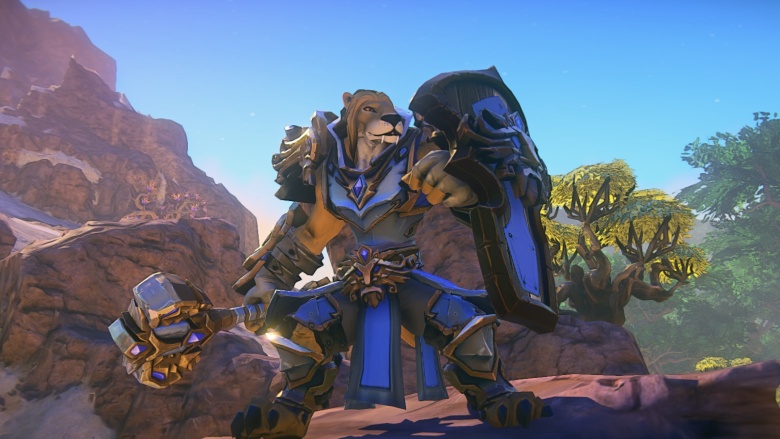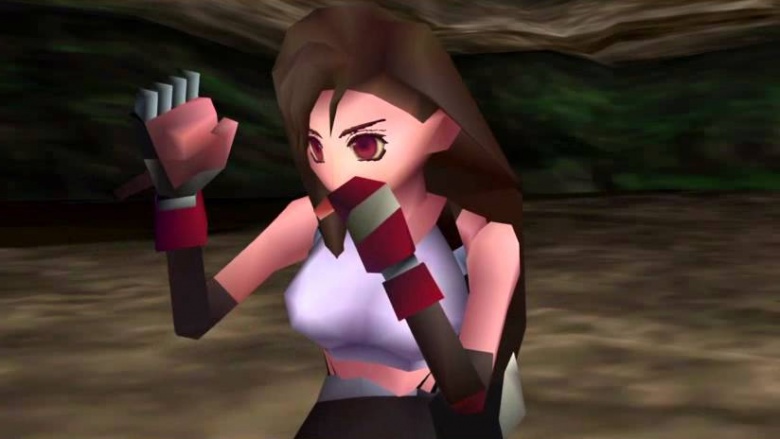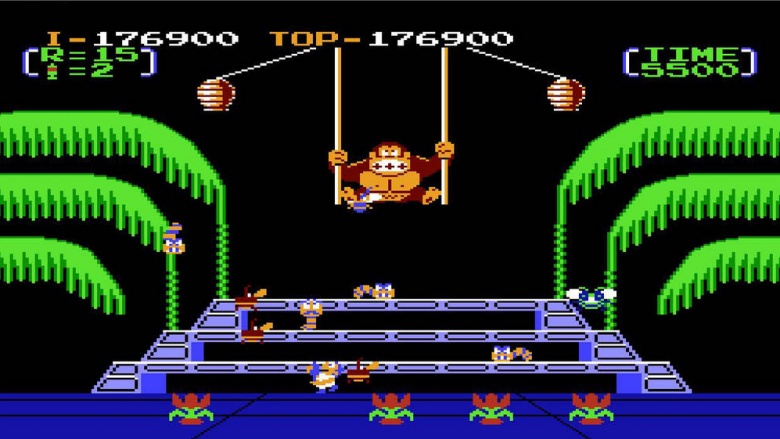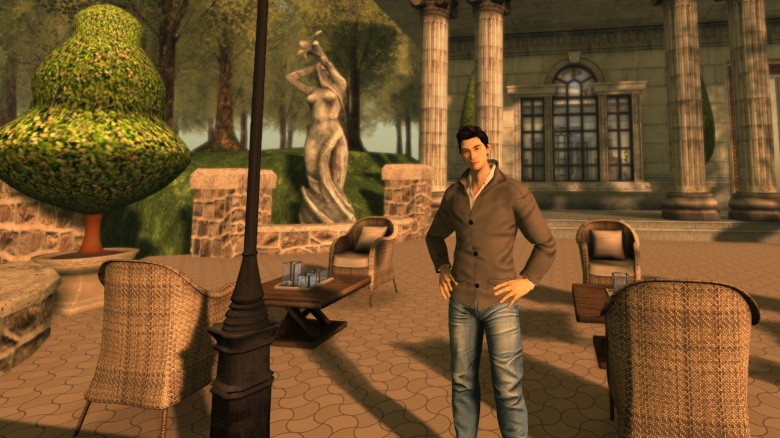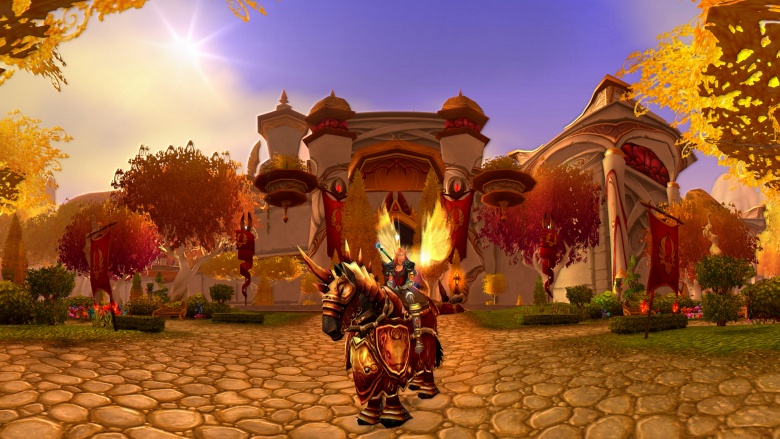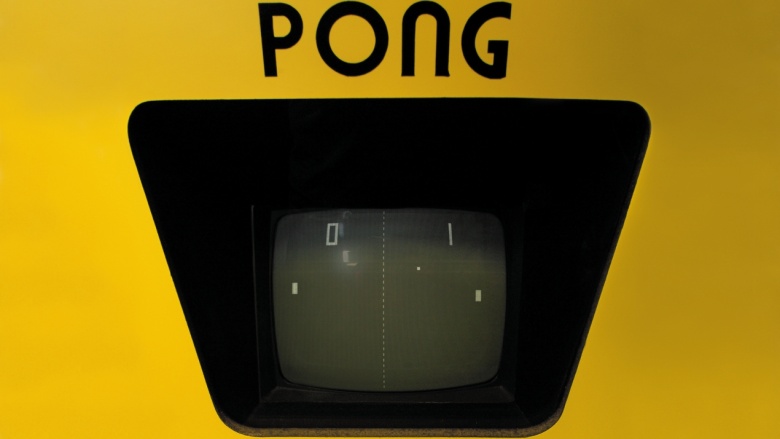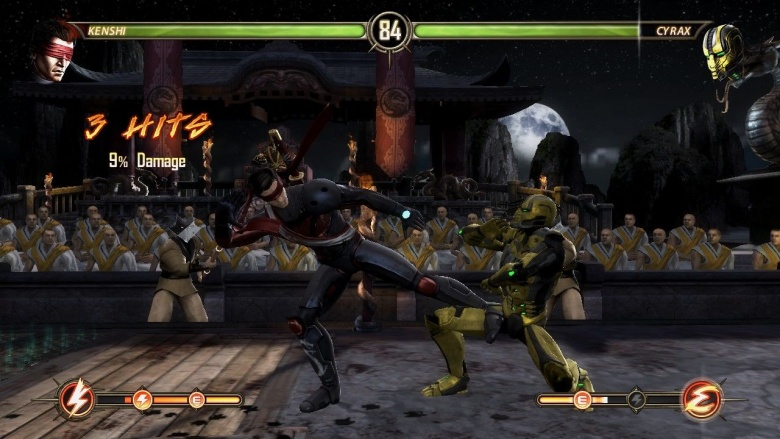11 Video Games That Led To Lawsuits
The history of video gaming is relatively short, but it's been filled with weirdness, not to mention lawsuits. So many video games, from the most beloved to the most maligned, have had their day in court, and here are some of the strangest routes some of them took to get there.
EverQuest
In 2009, Sony and their MMORPG juggernaut, EverQuest, found themselves in the middle of a huge legal battle, when blind gamer Alexander Stern took the game developer to court over what he considered their failure to make their game accessible to everyone. (It's a bit ironic, considering most of the complaints leveled at the game involve it being too accessible, a 24/7 timesink that made most of us miss even the biggest real-world holidays. Sorry about that, Mom.)
Stern claimed that he had been sending requests to EQ's development team for a while, pitching ideas on how they could make the visually-intensive game friendlier for those who shared Stern's disability. He not only claimed that he was ignored, but also that his gameplay was impacted and he was losing money, as he was unable to take part in online auctions.
The lawsuit was filed in October of 2009, and it was kicked out of court in February of the next year. The decision to throw the case out was based on the interpretation of whether or not the game was considered "a place of public accommodation," as it would need to be for Sony to be held responsible for making it accessible to everyone. The U.S. District Court for the Central District of California ruled that Norrath was not a public place (despite our imaginations insisting it totally is), and Sony was not held responsible.
Final Fantasy VII
Just the mention of Final Fantasy VII makes us feel all warm inside, and really, really makes us want to go relive the whole thing from start to finish. We're not the only ones, apparently, since in 2007, Square Enix cracked down on a Korean pop star named Ivy, for her bastardization of a fight scene from Final Fantasy VII's sequel movie, Advent Children.
Not only did the pop star don Tifa's trademark outfit and recreate the entire fight scene from the CGI spinoff, but for some reason they also thought it was perfectly acceptable to splice in actual scenes from the film. Ivy's video was released in March, and a cease-and-desist order was issued on April 6. The copyright lawsuit itself netted Square Enix an original sum of USD $244,000, but it wasn't over yet. Ivy's production company, Fantom Entertainment Group, went one step further and actually appealed the decision. This was obviously just another bad idea in a whole long list of bad ideas. The Seoul High Court was not amused, and raised the fine to USD $326,000. It was the largest award ever handed out by South Korea for copyright infringement on a single work.
Pokemon
Pokemon's longevity is probably only matched by the number of parents it's managed to annoy, and in 1999, it annoyed one adult enough that he went public with his plans to go to court. Magician / spoon-bender Uri Geller claimed that the Psi Pokemon Abra, Kadabra, and Alakazam were all based on his likeness and abilities. Geller made himself famous with his spoon-bending tricks, and the Pokemon magician that happens to be holding a pair of spoons was supposedly a clear rip-off of Geller's image.
Geller's crusade against Pokemon started when he saw the Japanese version of the cards. There, the creature wasn't called Abra, Kadabra, or Alakazam, and was instead called Un-geller. It wasn't helped that there was both a good and evil version of the character, and Geller was outraged that not only did he never give anyone permission to use his likeness, but Nintendo was clearly suggesting that what he did was at least a little bit evil.
The lawsuit was gearing up in 1999, when Geller and his lawyers went public with their demands of $100 million in damages. Unfortunately for him, the courts quickly told Geller to take his spoons and shove off.
Meteors
Never heard of it? That's not surprising, since that it was only in 2012 that Eric Holniker, son of creator Steve Holniker, found an incredibly rare prototype for the little-known video game that helped shape the laws and legislation of today's games.
Steve Holniker and his company, Amusement World, were sued by Atari for his game's similarity to Atari's Asteroids. The lawsuit includes what appears to be a damning list of similarities. In both, the player controls a spaceship that fires on rocks that go flying past. Small rocks move faster than large ones, large ones break into smaller ones when shot, the colors of the cabinet's controls were the same, the score was in the same place on the screen ... all told, there are 22 points of similarity listed in the lawsuit.
The court, thankfully, sides with Meteors, stating that a genre can't be subject to copyright laws. The similarities in the games were there because of the limits of technology, and because certain elements have to be in a game to make it playable. Even though Meteors most definitely took the idea from Asteroids, that's not what video game copyright is about. Which is good, because had Asteroids won, we would've been allowed one space game, one war game, one fighting game, and so on. We have choice in our genres because the little guy won. That being said, Meteors never saw widespread release, even after winning the lawsuit. Perhaps the lawsuit drained Amusement World of the desire to deal with their game ever again.
Edge
Never heard of this one, either? No worries, there's a reason for that. Edge was a short-lived puzzle game released for the iPhone in 2009 and its developer, Mobigame, was taken to court over an unthinkable offense: Naming their game "Edge."
The protest was lodged by Tim Langdell, a "trademark troll" whose actions awarded him a brief reign as one of gaming's most petty-minded and despised figures. Langdell has sat at the head of his Edge Games for decades (he founded the company in 1990), and even though most of those years were spent definitely not designing or publishing games in any way whatsoever (Langdell's company hadn't even released a game between 1994 and 2009,) he stubbornly refused to let anyone get away with using the word "edge" in their games.
Bizarrely, the action resulted in Mobigame's Edge being pulled from the market. It wasn't the only time Langdell pursued legal action over the word, either, with Soul Caliber ditching its original title of Soul Edge (we feel the new title was for the better, to be honest) after his pestering. Even gaming giant Electronic Arts wasn't too big for him, and they got into a spat over EA's Mirror's Edge.
Finally, in 2010, the U.S. District Court ruled what we'd all already been thinking: the trademark was asinine. Not to mention invalid. It took another few years for the ruling to finally catch up to the real world, and thankfully, video game developers no longer have to worry about getting too close to the "edge."
Tetris
The impact of the Meteors decision is still felt today. While it's opened the door for more than one, say, FPS featuring a cowboy and snarky, talking dog sidekick hunting zombie Nazis with a grenade launcher, it's made it harder for companies to fight when someone really does rip them off 100%. Enter Tetris, one of those games that's managed to hold onto a corner of the market even in the face of the relentless forward march of technology. It's not surprising that there's a ton of knock-offs out there, but there are only so many ways you can arrange blocks, and that's meant trouble.
In 2012, the iPhone app Mino went to court over their right to basically be Tetris. Their argument was that everything about Tetris was so integral to the game that there was no way to change it and be successful. That would mean that it wasn't copyrighted, thanks to the same laws that let Meteors get away with being Asteroids. Settling the lawsuit meant the courts had to do a bit of reverse-engineering and figure out what made the games.
The findings were, this time, against Mino. Certain things weren't protected by copyright, like the idea of falling blocks, the puzzle aspect, and the game-over when you finally screwed up and the screen filled. But other things, like the preview of the next piece and the presence of those annoying, pre-generated lines that show up when you start were protected by copyright. That all means there can be a very fine line when it comes to copying an idea and copying a game wholesale.
Donkey Kong
If you've ever wondered about the similarity between the gorilla's names in Donkey Kong and King Kong, it's exactly that kind of thinking that put Nintendo squarely in Universal Studio's sights. When Donkey Kong was released, Universal took Nintendo to court over claims that their barrel-throwing, woman-grabbing gorilla was clearly meant to be King Kong. It wasn't the first time Universal had been to court over their favorite ape, either — in 1975, they were on the receiving end of a lawsuit from RKO, who claimed that Universal's remake of King Kong was violating their copyright of the character.
That whole massive legal mess aside, Universal went on the warpath in 1982 when they targeted not only Nintendo, but other companies who were putting out gorilla-themed merchandise. Nintendo pointed out that, not only did the movie's plot have absolutely nothing to do with whatever plot there was to the game, but pointed out that Universal had — only seven years before, during the battle with RKO — successfully argued in court that King Kong was public domain, meaning they could do whatever they pleased with him.
The courts ruled in favor of Nintendo, who then added insult to injury by pointing out that Universal had licensed a King Kong game to Tiger in an attempt to thumb their nose at Donkey Kong. Unfortunately for the movie people, the courts ruled that the Tiger game was in breach of Nintendo's Donkey Kong copyright (since the King Kong game played almost exactly like Nintendo's), but that Universal had to hand over some of the profits.
Second Life
There's definitely no shortage of weird stories surrounding Second Life, and in 2009, the online game was put squarely in the middle of a lawsuit over whether or not the properties of a virtual avatar could be something that a person presumably living in the real world could sue over.
It started with Richard Minsky and SLART. Minsky, who was an artist in the real world, decided to establish his online presence through Second Life, and the creation of a digital art gallery where he could buy and sell online artworks to avatars. Alongside the virtual gallery, he developed a web site and magazine linking his real persona, his Second Life persona, and the art world. Minsky then filed for a real-world trademark on the word SLART, which he chose after finding it hadn't been used anywhere else and deciding that it sounded funny. (If people wanted to associate it with "slut" and "fart" or "slut" and "tart," that was just a bonus.) He got his trademark in March of 2008, and later that month, came across someone else using the term "SLART" for their in-game art gallery. (This makes sense, as arguably, the word could also easily be derived from "Second Life ART".)
After requesting they change the name and getting no response, Minsky went to court for a sum equal to $1,000 per day for each instance of copyright infringement. Linden Research claimed that the use of the name was completely legit, as the "SL" in their SLART probably did come from "Second Life," and Minsky had no claim on that name. After settling out of court, Linden (successfully) petitioned for Minsky's trademark rights to be terminated, as his trademark clearly infringed on the property rights of the game itself.
World of Warcraft
Anyone who's spent any time immersed in a World of Warcraft chat room knows that there's some pretty questionable people roaming Azeroth. In 2010, Blizzard set their sights on one person in particular, who wasn't even a part of any regulated, approved chat.
Alyson Reeves was the owner of Scapegaming, which made its millions hosting a private WoW server. Subscribers could pay for everything from free levels to free gear and endless rare items, and they could pay hundreds of dollars for access. The private servers skirted Blizzard's own servers, along with their EULA and all the other rules and regulations that goes along with doing things the legit way.
Blizzard's inevitable lawsuit featured a huge list of charges that ranged from copyright infringement to getting around subscription fees. Those subscription fees alone would amount to no small pile of gold, as there were around 427,000 people on Scapegaming's server at the time of the lawsuit. When Reeves (who operated out of the country of Georgia) didn't show up for court, the ruling automatically went in favor of Blizzard. But they weren't just awarded the win — they were awarded the mind-numbing amount of $88 million.
That's not a typo. The court decided that Scapegaming needed to pay $64,000 in attorney's fees, $3 million in disgorged profits, and a further $85.4 million in statutory damages, a number based on the members of the community, multiplied by $200 for each offense. It's highly unlikely Blizzard will ever see more than a fraction of that amount, but humiliating Reeves and forcing her servers offline forever is probably more than enough of a victory.
Pong
Lawsuits and video games have gone hand-in-hand since the early days. In fact, video games had barely even had a birthday when Magnavox sued over Activision's release of Pong. The claims cited evidence that dated back to 1967, when the Sanders Association took out some patents on the idea of using television as a medium to present games to the masses. They also patented an incredibly vague notion that, had it stuck, would have allowed them to hold nothing less than a monopoly over video game creation.
Except ... they patented the idea of one object hitting another object and bouncing off. That literally describes Pong in its entirety, and when Sanders and Magnavox teamed up, they produced a paddle-and-ball game in 1971. Atari released Pong in 1975, and Magnavox quickly sued to protect what they called their "ball and paddle" copyright. Activision's argument was that the copyright applied only to the technology Magnavox used to create their game, not the part of the game that actually went up on the screen.
Magnavox won the first round, helped by testimony that Pong creator Nolan Bushnell had been seen (but only by Magnavox employees) playing the Magnavox version at a tradeshow well before he developed his Atari version. Whatever the truth actually was (Bushnell denied he'd even been at the trade show, and that he definitely hadn't played the game), the two companies settled out of court. Atari forked over $700,000, and in exchange, Magnavox agreed to go after any other tennis-esque video game with the same fervor they had devoted to Pong. In the end, that helped boost Pong's popularity as one of the only actual games out there. They sold games, Magnavox did the dirty work chasing knock-offs, and the rest is history.
Mortal Kombat
In 1997, 13-year-old Noah Wilson was killed when he was stabbed in the chest with a kitchen knife. Wielding the knife was his friend, identified only as Yancy S., whom Noah's mother later claimed was obsessed with Mortal Kombat. She ended up taking Midway Games to court, suing for damages. The case was ultimately dismissed, and it was ruled that games aren't products, and therefore aren't subject to the same laws and liabilities that govern products. The court also ruled that any claims to emotional distress Wilson's mother might have were overruled by the First Amendment.
The arguments on both sides make for pretty fascinating reading, especially in hindsight. Wilson's claims were built on the idea that Mortal Kombat used "extremely sophisticated futuristic technology that was intended to cause the user to believe and physically feel that he is actually participating in the violent battles". The movement that killed her son, she argued, was identical to the finishing move of Cyrax. The argument — that the immersive nature of video games causes a blurring of the line between the real world and the in-game one — is one that we've heard countless times since then. But she went one step further, accusing Midway of publishing the game with intent to target children, get them addicted, and finally push them into committing violent acts. Ultimately, the First Amendment was enough to protect Midway, Mortal Kombat, and video games as a whole, from being labelled as a gateway drug to cold-blooded murder.

